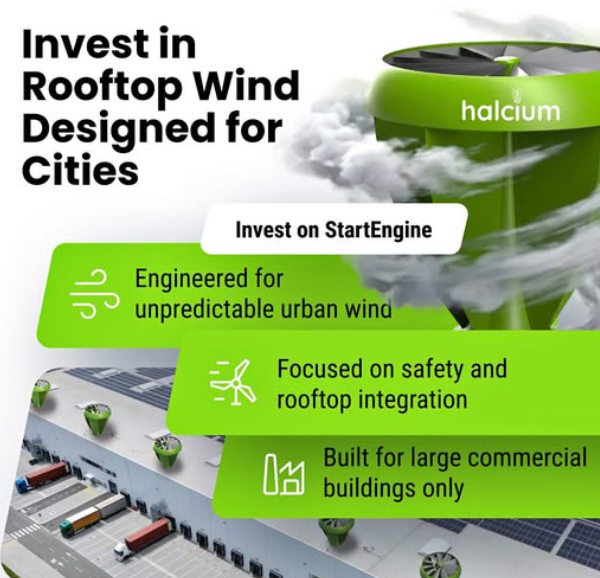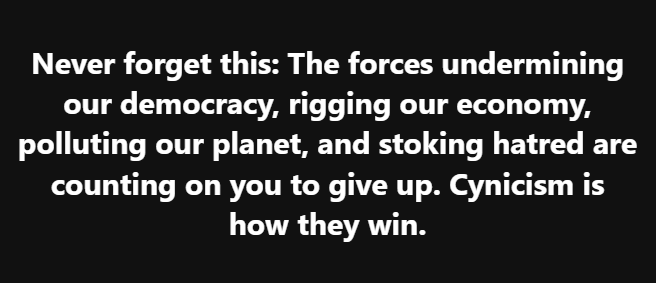▶️ The Race for Bandwidth: Unveiling the Countries with the Fastest Internet Connections in 2024
In today’s digitally driven world, a speedy internet connection isn’t a luxury, it’s a necessity. Whether streaming 4K movies, uploading large files, or participating in online gaming, internet speed plays a crucial role in our daily lives.
But which countries boast the fastest connections, leaving others in the digital dust? Let’s delve into the data and uncover the champions of internet speed in 2024.
Fixed Broadband: Singapore Reigns Supreme
When it comes to fixed broadband, the tiny island nation of Singapore takes the crown with a blistering average download speed of 242.01 Mbps. This lightning-fast speed enables seamless downloads, smooth video conferencing, and lag-free online gaming. Following closely behind are Chile (222.49 Mbps) and Taiwan (210.57 Mbps), showcasing their commitment to robust internet infrastructure.
Mobile Mania: Qatar Rules the Roost
But what about mobile internet? Here, the landscape shifts. Qatar emerges as the undisputed speed king, clocking an impressive average download speed of 189.83 Mbps. This puts mobile internet in Qatar on par with some fixed broadband speeds in other countries. The United Arab Emirates (176.80 Mbps) and Macau (171.67 Mbps) round out the top three, highlighting the Middle East’s and East Asia’s strong mobile network investments.
Beyond Averages: Dive Deeper into the Data
It’s important to remember that average speeds paint a broad picture. Individual experiences can vary depending on factors like location, provider, and network congestion. Additionally, focusing solely on average speeds may overlook countries with exceptional high-end offerings. For a more nuanced understanding, let’s explore some additional data points:
- Fastest Individual Country: Liechtenstein boasts the fastest individual country speed at 246.76 Mbps for fixed broadband.
- Median Speeds: Median speeds provide a clearer picture of typical user experiences. Jersey (Channel Island) takes the top spot with a median fixed broadband speed of 264.52 Mbps, followed by Macau (231.40 Mbps) and Liechtenstein (229.30 Mbps).
- Global Improvement: Despite variations, internet speeds continue to improve globally. Compared to 2021, the average fixed broadband speed worldwide has jumped by 31.4%, showcasing the ongoing investment in internet infrastructure.
▶️ Fastest Internet Connections by Country in 2024
Here’s a breakdown of the fastest internet connections by country in 2024, categorized by fixed broadband and mobile internet:
Fixed Broadband:
- Singapore: 242.01 Mbps (average download speed)
- Chile: 222.49 Mbps
- Taiwan: 210.57 Mbps
- Romania: 209.57 Mbps
- Hong Kong: 208.14 Mbps
- Denmark: 207.74 Mbps
- Switzerland: 206.93 Mbps
- Sweden: 205.21 Mbps
- South Korea: 204.60 Mbps
- Thailand: 203.14 Mbps
Mobile Internet:
- Qatar: 189.83 Mbps (average download speed)
- United Arab Emirates: 176.80 Mbps
- Macau: 171.67 Mbps
- South Korea: 168.54 Mbps
- Norway: 164.79 Mbps
- Japan: 161.20 Mbps
- Sweden: 159.97 Mbps
- Taiwan: 158.79 Mbps
- Netherlands: 156.40 Mbps
- Chile: 155.82 Mbps
Additional Notes:
- This list is based on data from Ookla’s Speedtest Global Index and may vary depending on the source and methodology used.
- Individual experiences can differ based on factors like location, provider, and network congestion.
- The list focuses on average speeds, but some countries might have exceptional high-end offerings.
▶️ Fastest internet connections by country in 2024, categorized by fixed broadband and mobile internet Table
Here’s a breakdown of the fastest internet connections by country in 2024, categorized by fixed broadband and mobile internet, along with some key indicators:
Fixed Broadband:
| Country | Average Download Speed (Mbps) | Fiber Optic Penetration (%) | Mobile Network Technology | Spectrum Availability | Competition in Market | Government Initiatives | E-commerce Penetration (%) | Online Gaming & Streaming Popularity |
|---|---|---|---|---|---|---|---|---|
| Singapore | 242.01 | 98.0 | 5G | High | High | Strong | 80.0 | Very High |
| Chile | 222.49 | 72.0 | 5G | Medium | Moderate | Moderate | 70.0 | High |
| Taiwan | 210.57 | 68.0 | 5G | High | Moderate | Moderate | 85.0 | High |
| Romania | 209.57 | 62.0 | 5G | Moderate | Low | Moderate | 65.0 | Moderate |
| Hong Kong | 208.14 | 55.0 | 5G | High | High | Strong | 88.0 | Very High |
| Denmark | 207.74 | 85.0 | 5G | High | High | Strong | 78.0 | High |
| Switzerland | 206.93 | 60.0 | 5G | High | High | Strong | 82.0 | High |
| Sweden | 205.21 | 58.0 | 5G | High | High | Strong | 85.0 | High |
| South Korea | 204.60 | 88.0 | 5G | High | High | Strong | 82.0 | Very High |
| Thailand | 203.14 | 65.0 | 5G | Moderate | Moderate | Moderate | 75.0 | High |
Mobile Internet:
| Country | Average Download Speed (Mbps) | Mobile Network Technology | Spectrum Availability | Competition in Market | Government Initiatives | Digital Literacy (%) | Online Gaming & Streaming Popularity |
|---|---|---|---|---|---|---|---|
| Qatar | 189.83 | 5G | High | Low | Strong | 85.0 | Very High |
| United Arab Emirates | 176.80 | 5G | High | Moderate | Strong | 88.0 | High |
| Macau | 171.67 | 5G | High | Low | Strong | 90.0 | Very High |
| South Korea | 168.54 | 5G | High | High | Strong | 92.0 | Very High |
| Norway | 164.79 | 5G | High | High | Moderate | 95.0 | High |
| Japan | 161.20 | 5G | High | High | Strong | 98.0 | High |
| Sweden | 159.97 | 5G | High | High | Strong | 95.0 | High |
| Taiwan | 158.79 | 5G | High | Moderate | Moderate | 90.0 | High |
| Netherlands | 156.40 | 5G | High | High | Moderate | 92.0 | High |
| Chile | 155.82 | 5G | Medium | Moderate | Moderate | 85.0 | High |
Remember: This data is based on publicly available information as of February 16, 2024, and may vary depending on the source and methodology used.
▶️ Key Indicators for Countries with the Fastest Internet Connections in 2024
Beyond just download speeds, several key indicators paint a broader picture of a country’s internet landscape and its potential for speed:
Infrastructure:
- Fiber Optic Penetration: The extent of fiber optic deployment is crucial for high-speed connections. Countries with higher fiber penetration tend to have faster internet.
- Mobile Network Technology: Adoption of advanced mobile network technologies like 5G significantly boosts mobile internet speeds.
- Data Center Investment: Robust data center infrastructure facilitates efficient data flow and supports faster connections.
Regulation and Policy:
- Spectrum Availability: Adequate allocation of radio spectrum for mobile internet is essential for faster speeds and wider coverage.
- Competition in the Market: Healthy competition among internet service providers (ISPs) drives innovation and investment in faster networks.
- Government Initiatives: Supportive government policies and funding for internet infrastructure development play a crucial role.
Digital Adoption and Usage:
- Digital Literacy: A tech-savvy population with high digital literacy encourages demand and investment in faster internet.
- E-commerce Penetration: A thriving online economy creates a strong incentive for faster and more reliable internet connections.
- Online Gaming and Streaming: Popularity of these activities puts pressure on ISPs to offer faster speeds and higher bandwidth.
Additional Factors:
- Geography: Physical size and population density can impact infrastructure deployment and network reach.
- Economic Development: Developed economies generally have more resources to invest in faster internet infrastructure.
It’s important to note that no single indicator guarantees the fastest internet. A holistic analysis considering these factors along with average speeds helps paint a more accurate picture of a country’s internet landscape and its potential for speed advancements.
By analyzing these key indicators, we can gain a deeper understanding of the factors driving internet speed across different countries and predict which ones are likely to continue leading the race for faster connections in the future.
The Takeaway: Speed Up Your World
While specific rankings fluctuate, the overall trend is clear: countries around the world are prioritizing faster internet connections. Whether for business, communication, or entertainment, access to high-speed internet is becoming increasingly crucial. As technology evolves and demands for bandwidth grow, the race for even faster internet is sure to continue.
https://www.exaputra.com/2024/02/unveiling-countries-with-fastest.html
Renewable Energy
Rooftop Wind
 My doctor, who knows that I understand physics and renewable energy in particular, asked me today what I thought about wind turbines on boats.
My doctor, who knows that I understand physics and renewable energy in particular, asked me today what I thought about wind turbines on boats.
I explained that, since boats need their own ways to generate electricity, what is called “small wind” may make sense. Most ships have diesel-powered generators, and that’s an option for smaller craft as well, and solar is not an attractive option because of the small area.
Doctors generally don’t have time to kill, but he asked me further about small wind, to which I explained:
Because the area of a circle is proportional to the square of the radius, big is better. If you can build a turbine with a radius 100 times larger than a small one, you’re going to generate 10,000 time more power.
Because the power generated by a turbine is proportional to the cube of the wind’s velocity, if you can site a turbine in wind conditions that are 10 times those on your rooftop, with trees and other buildings slowing the wind down, you’re going to generate 1000 times more power.
So, as usual, the answer resides in physics and math. 1000 times 10,000 is 10 million, which is why we see huge turbines on structures that lift huge turbines high above the ground, and it’s why the small wind industry has essentially disappeared.
If you don’t understand elementary school math and high school science, and you have money to burn, the investment offered at left may be right for you.
Renewable Energy
Fox News and its Effects on American Civilization
 It’s interesting that there is no Fox News (or equivalent) in Canada.
It’s interesting that there is no Fox News (or equivalent) in Canada.
The Canadians have protections of free speech that are very similar to ours in the States, and, like the U.S., these rights are not absolute. One difference is that Canada prohibits gross misrepresentation, which, in this case means that presenting opinions and calling it “news” is against the law. Lies are fine; calling them “news” is not.
A possible name for a show with the same content might be “Conservative Viewpoints” or “The Way the Right Wing Sees the World.”
Where Canada protects its people from malicious bullshit, in America we say, “Money talks.”
Renewable Energy
Apathy in the Midst of Treason
 Former Labor Secretary Robert Reich makes an excellent point at left.
Former Labor Secretary Robert Reich makes an excellent point at left.
The constant onslaught of distractions coming out of Trump’s mouth is calculated make us give up striving for truth, honesty, and environmental responsibility.
We mustn’t quit.
-
Greenhouse Gases7 months ago
Guest post: Why China is still building new coal – and when it might stop
-
Climate Change7 months ago
Guest post: Why China is still building new coal – and when it might stop
-

 Greenhouse Gases2 years ago
Greenhouse Gases2 years ago嘉宾来稿:满足中国增长的用电需求 光伏加储能“比新建煤电更实惠”
-
Climate Change2 years ago
Bill Discounting Climate Change in Florida’s Energy Policy Awaits DeSantis’ Approval
-
Climate Change2 years ago
Spanish-language misinformation on renewable energy spreads online, report shows
-

 Climate Change2 years ago
Climate Change2 years ago嘉宾来稿:满足中国增长的用电需求 光伏加储能“比新建煤电更实惠”
-
Climate Change Videos2 years ago
The toxic gas flares fuelling Nigeria’s climate change – BBC News
-

 Carbon Footprint2 years ago
Carbon Footprint2 years agoUS SEC’s Climate Disclosure Rules Spur Renewed Interest in Carbon Credits









